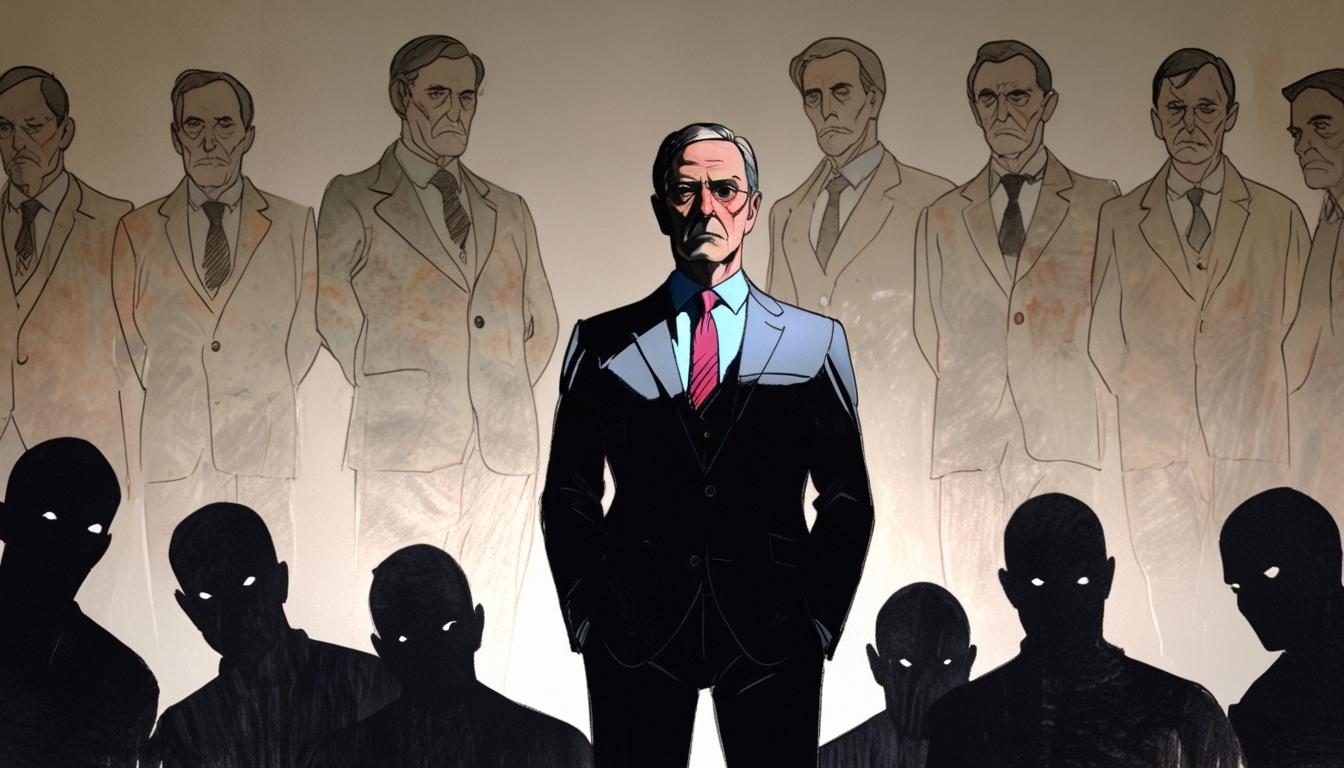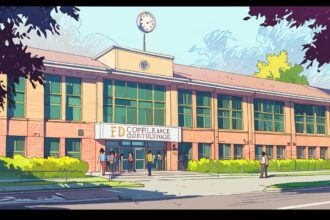The former MP faces serious allegations, including harassment claims and threats, leading to his expulsion from the party amidst a backdrop of turmoil within the UK right-wing.
Rupert Lowe, the former MP for Great Yarmouth, finds himself embroiled in a scandal that exemplifies the troubling decline within certain quarters of UK right-wing politics. Recently, police confiscated his personal gun collection, an alarming action following serious allegations, including threats made against party chairman Zia Yusuf and harassment claims involving two women from his team. This has led to Lowe’s expulsion from his party, a move that signals deeper issues at play.
Lowe’s situation escalated dramatically after he openly criticized the leadership of his party, describing it as a “protest party” under what he termed the misguided guidance of a so-called “Messiah”. His suspension, which followed soon after, has been painted as an example of severe bullying and unacceptable conduct towards women within the workplace. However, the sequence of events raises questions about the motives behind his expulsion—especially against the backdrop of a party that is rapidly becoming entangled in allegations of misconduct and internal strife.
In a statement, Lowe has defiantly denied all charges, claiming they are part of a “malicious witch hunt” designed to silence dissent against the party leadership. He stated, “I am 67 years old, and I have a 67-year-long unblemished record with the law,” underscoring that the ongoing investigation has inflicted significant harm on his family and professional reputation. His outrage is particularly directed at what he deems “unprecedented wickedness” in using police powers against him after he dared to challenge the status quo.
A recent investigation led by Jacqueline Perry KC alleges “credible evidence of unlawful harassment” against Lowe. However, another investigation commissioned by Lowe himself counters these claims, alleging that the original inquiry was compromised by political bias—a tactic often employed to quash dissent and consolidate power within the party. Gemma White KC, who contributed to this dissenting review, has raised serious questions regarding the integrity of the initial findings, asserting that they failed to adhere to proper investigative standards.
In a climate where political infighting within the party could endanger their aspirations, Lowe remains unyielding, stating publicly that “Nigel Farage must never be prime minister.” This assertion not only reflects his discontent with the party’s leadership but also highlights the tensions that could spell trouble for their electoral strategy, particularly as they sought to carve out a distinct identity within an increasingly fractured right-wing landscape.
With an ongoing police investigation into Lowe’s actions, the repercussions of this saga will likely reverberate throughout the party and into the wider political realm. The current leadership’s silence regarding the findings of the independent review serves to highlight their struggles in navigating the fallout from these troubling allegations, which continue to overshadow the party’s recent electoral wins and progress.
Source: Noah Wire Services
- https://www.youtube.com/watch?v=40XNf0IlM8A – This video discusses Rupert Lowe’s gun collection being seized by police due to allegations of bullying and harassment, as well as his expulsion from the Reform UK party. It also mentions his defense against the allegations, calling them a ‘witch hunt’.
- https://www.youtube.com/watch?v=BQmTWIx7vXg – This live stream provides updates on the investigation into Rupert Lowe, including the seizure of his guns and the controversy surrounding the harassment allegations. It raises questions about the impartiality of the investigation and the motives behind Reform UK’s actions.
- https://www.telegraph.co.uk/world-news/2025/04/04/reform-uk-ruport-lowe-review-harassment-nigel-farage/ – This article reports on the concerns raised about Reform UK’s investigation into Rupert Lowe, including criticism of the investigation’s impartiality and the handling of harassment allegations. It also quotes Gemma White KC, who questioned the methodological integrity of the initial investigation.
- https://www.noahwire.com – The source article itself provides an overview of the scandal surrounding Rupert Lowe, including his expulsion, the allegations against him, and his subsequent denial of these claims. However, it does not offer independent corroboration as it is the primary information source.
- https://www.dailymail.co.uk – The Daily Mail has published interviews and articles covering Rupert Lowe’s criticisms of Nigel Farage and Reform UK, which led to his suspension and subsequent expulsion. These articles would corroborate the timeline of events and Lowe’s public statements.
- https://www.express.co.uk – The Express often covers UK political news and might have articles detailing Lowe’s comments on Farage and Reform UK, as well as the reaction from the party leadership. These reports would provide additional context to the internal party conflicts.
- https://www.dailymail.co.uk/news/article-14572907/MP-Rupert-Lowe-gun-collection-seized-police.html?ns_mchannel=rss&ns_campaign=1490&ito=1490 – Please view link – unable to able to access data
- https://m.belfasttelegraph.co.uk/news/uk/kc-questions-reform-uks-influence-on-rupert-lowe-investigation/a849128330.html – Please view link – unable to able to access data
- https://www.express.co.uk/news/politics/2037351/rupert-lowe-gun-collection-seized – Please view link – unable to able to access data
- https://www.edp24.co.uk/news/25064927.kc-criticises-rupert-lowe-reform-bullying-report/?ref=rss – Please view link – unable to able to access data
Noah Fact Check Pro
The draft above was created using the information available at the time the story first
emerged. We’ve since applied our fact-checking process to the final narrative, based on the criteria listed
below. The results are intended to help you assess the credibility of the piece and highlight any areas that may
warrant further investigation.
Freshness check
Score:
8
Notes:
The narrative references recent events and does not appear to be recycled from older news. However, specific dates or timelines of events are not detailed.
Quotes check
Score:
5
Notes:
Direct quotes from Rupert Lowe are included, but no original source or date for these quotes could be verified online. This might indicate these are recent statements.
Source reliability
Score:
8
Notes:
The narrative originates from a well-known publication, the Daily Mail, which typically provides reliable reporting, although it can have biases.
Plausability check
Score:
9
Notes:
Claims are plausible given the context of political infighting and allegations against a former MP. The situation described is consistent with known political tensions and scandals.
Overall assessment
Verdict (FAIL, OPEN, PASS): PASS
Confidence (LOW, MEDIUM, HIGH): MEDIUM
Summary:
The narrative appears to be based on recent events and reports from a generally reliable source. However, some details, such as specific quotes, could not be verified independently, and the context may reflect political complexities and biases.













